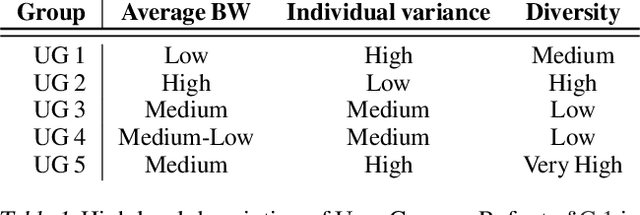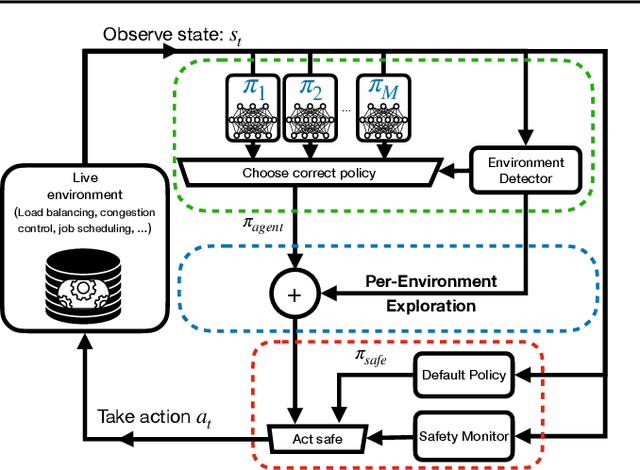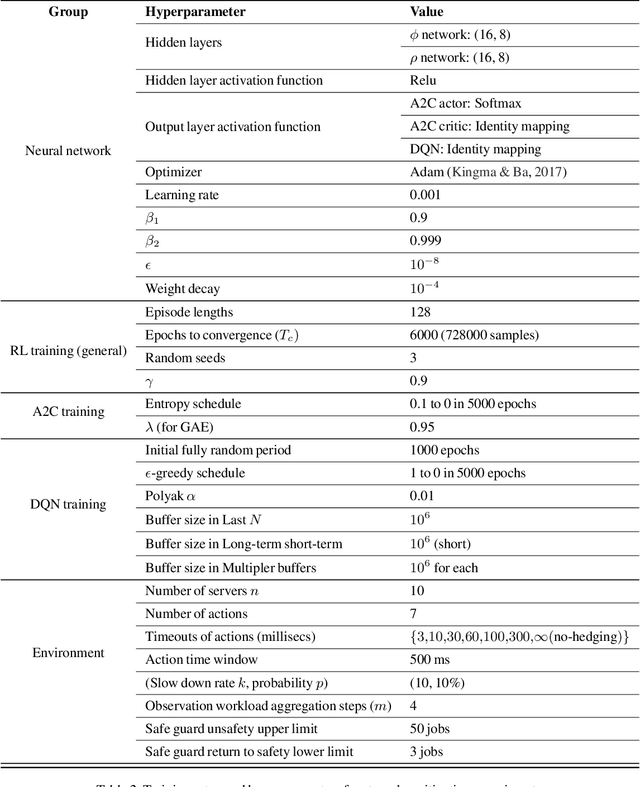Siddartha Sen
Locally Constrained Policy Optimization for Online Reinforcement Learning in Non-Stationary Input-Driven Environments
Feb 04, 2023Abstract:We study online Reinforcement Learning (RL) in non-stationary input-driven environments, where a time-varying exogenous input process affects the environment dynamics. Online RL is challenging in such environments due to catastrophic forgetting (CF). The agent tends to forget prior knowledge as it trains on new experiences. Prior approaches to mitigate this issue assume task labels (which are often not available in practice) or use off-policy methods that can suffer from instability and poor performance. We present Locally Constrained Policy Optimization (LCPO), an on-policy RL approach that combats CF by anchoring policy outputs on old experiences while optimizing the return on current experiences. To perform this anchoring, LCPO locally constrains policy optimization using samples from experiences that lie outside of the current input distribution. We evaluate LCPO in two gym and computer systems environments with a variety of synthetic and real input traces, and find that it outperforms state-of-the-art on-policy and off-policy RL methods in the online setting, while achieving results on-par with an offline agent pre-trained on the whole input trace.
Reinforcement Learning in Time-Varying Systems: an Empirical Study
Jan 14, 2022



Abstract:Recent research has turned to Reinforcement Learning (RL) to solve challenging decision problems, as an alternative to hand-tuned heuristics. RL can learn good policies without the need for modeling the environment's dynamics. Despite this promise, RL remains an impractical solution for many real-world systems problems. A particularly challenging case occurs when the environment changes over time, i.e. it exhibits non-stationarity. In this work, we characterize the challenges introduced by non-stationarity and develop a framework for addressing them to train RL agents in live systems. Such agents must explore and learn new environments, without hurting the system's performance, and remember them over time. To this end, our framework (1) identifies different environments encountered by the live system, (2) explores and trains a separate expert policy for each environment, and (3) employs safeguards to protect the system's performance. We apply our framework to two systems problems: straggler mitigation and adaptive video streaming, and evaluate it against a variety of alternative approaches using real-world and synthetic data. We show that each component of our framework is necessary to cope with non-stationarity.
 Add to Chrome
Add to Chrome Add to Firefox
Add to Firefox Add to Edge
Add to Edge